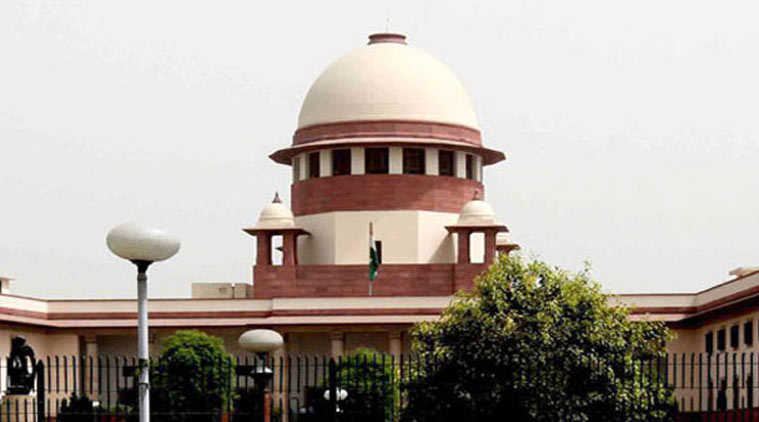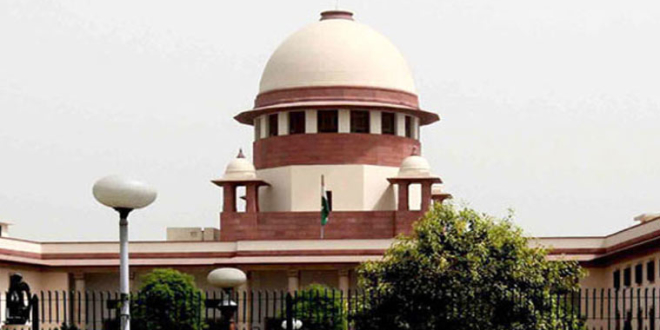
 Supreme Court of India.
Supreme Court of India.
Limiting the right to contest panchayat elections has become a legislative trend — Haryana now subjects candidates to the requirements of having a toilet and certain minimum educational qualifications. In 2014, Rajasthan enacted similar restrictions and the Supreme Court declined to grant a stay, enabling the upcoming elections to proceed. Early this month, in Rajbala, a two-judge bench validated a Haryana law disenfranchising Scheduled Caste women who had not attained the prescribed educational qualification (Class V exams), and individual candidates who had not yet built a toilet. Concurring with Justice J. Chelameswar’s lead opinion, Justice Abhay Manohar Sapre went on to say that the toilet requirement is the “need of the hour” and should be India-wide.
Progressive opinion has castigated this decision for its timing — it was paradoxically announced on Human Rights Day! It has been termed “retrograde” for panchayati raj governance, backward-looking for the introduction of irrelevant considerations, and unconstitutional posturing for failing to appreciate that contesting and voting in any election (adult suffrage) is a constitutional, and not just a statutory, right. The reasoning of the court is, however, overlooked; the future review and curative petitions would show further contest.
Indian citizens have fundamental, constitutional and statutory rights. Statutory rights may be limited or extinguished by an amendment or repeal; fundamental rights are subject to reasonable restrictions and what is “reasonable” is for Parliament and the Supreme Court to finally decide; constitutional rights are neither fundamental nor statutory, but these can be changed only by a constitutional amendment that must run the gauntlet of the essential features of the basic structure of the Constitution.
True, the right to contest panchayat elections is subject to any law made by the state legislature, and identical provisions (Articles 101 and 191) prescribe specific grounds for disqualification for Parliament and state legislatures. But this scarcely means that the state may disenfranchise panchayat contestants at will, as ruled by the Supreme Court twice by two benches of three judges — and the present bench had to hold itself thus bound. Ought not the chief justice of India have constituted a larger bench as a matter of good judicial administration? To say that neither counsel nor the justices asked for it is an inadequate response. If the curative petition succeeds, a larger bench will have to be constituted. Why perform justice by stages and wait almost interminably for the right result?
The court can be said to have misread the constitutional right to adult suffrage — guaranteed by Article 326 — which provides for both the right to contest and to vote. Constitutional rights ought not to be equated with statutory rights. For example, the directive principles embody social, economic and cultural rights as “fundamental” to governance and making laws and policies. Article 300 A confers a constitutional right that carries with it some interpretive imprimaturs of the erstwhile right to property (Article 31). Insertion or deletion of a right, further, requires a constitutional amendment. And all amendments are subject to the doctrine of essential features of the basic structure of the Constitution.
The difficulty is that the court treats the right to contest as a statutory right, whereas the right to vote is a constitutional right.
Why so? What then forbids a legislature, or even a judicial opinion, from declaring that the latter is also such? A terrifying thought occurs that this right to adult suffrage — a cornerstone of democracy — can be amended to a point of abrogation by legislature or Parliament and the Supreme Court acting in unison. However, the Constitution was consecrated only to subject legislative or judicial majority to its discipline, not to gift the rulers a plaything.
True, constitutional rights, like fundamental rights, are subject to reasonable restrictions. But the regulation has to be “reasonable” as not being arbitrary under Article 14 (the new substantive due process test) or under the old criterion of reasonable classification. Justice Chelameswar, who made no secret of his dislike of the basic structure doctrine in the National Judicial Appointments Commission dissent, now exclusively relies on the old test and upholds the Haryana law as reasonable. But can a two-judge bench do so, when larger benches have ruled in favour of the substantive due process test?
The toilet requirement is held to be reasonable because a “salutary provision designed as a step for eliminating the unhealthy practice of rural India of defecating in public ought not to be invalidated.” The court also finds that “approximately 7.2 lakh” out of 8.5 lakh households living below the poverty line had already availed financial facilities made available by the state and constructed toilets. Reliability apart, this statistic itself shows that a lot of change had happened already without a legislative disincentive. Why now exclude 1.3 lakh households from contesting? Justice Chelameswar responds: “Those who aspire to get elected to those civic bodies and administer them must set an example for others.” But we do not know what difficulties the affected people face in accessing financial assistance. Nor do we know that they had wilfully not built a toilet. Nor still do we know that any punitive approach adversely affecting minority populations is either reasonable or helpful.
On the court’s own showing, 68 per cent of Scheduled Caste women would now be disqualified from contesting panchayat elections. It says explicitly that the “numerical dimension of such classes, in our opinion, should make no difference”. However, the democratic process itself is based on the power of numbers, whether legislative or judicial. Justice Chelameswar has an additional reason: He thinks education is essential because “it is only education which gives a human being the power to discriminate between right and wrong, good and bad”. True to some extent; but are formal credentials the only things that enable us to distinguish between right and wrong?
The substance of democracy is now at stake; so is the impact of adjudicatory reasoning about reasonableness of legislative restrictions. The court should be more demanding and ask the state to more fully justify performances of disenfranchisement, rather than sanction feasts of disincentives that disable people from duly participating in the political life of the nation.
![]()
Source: New feed






